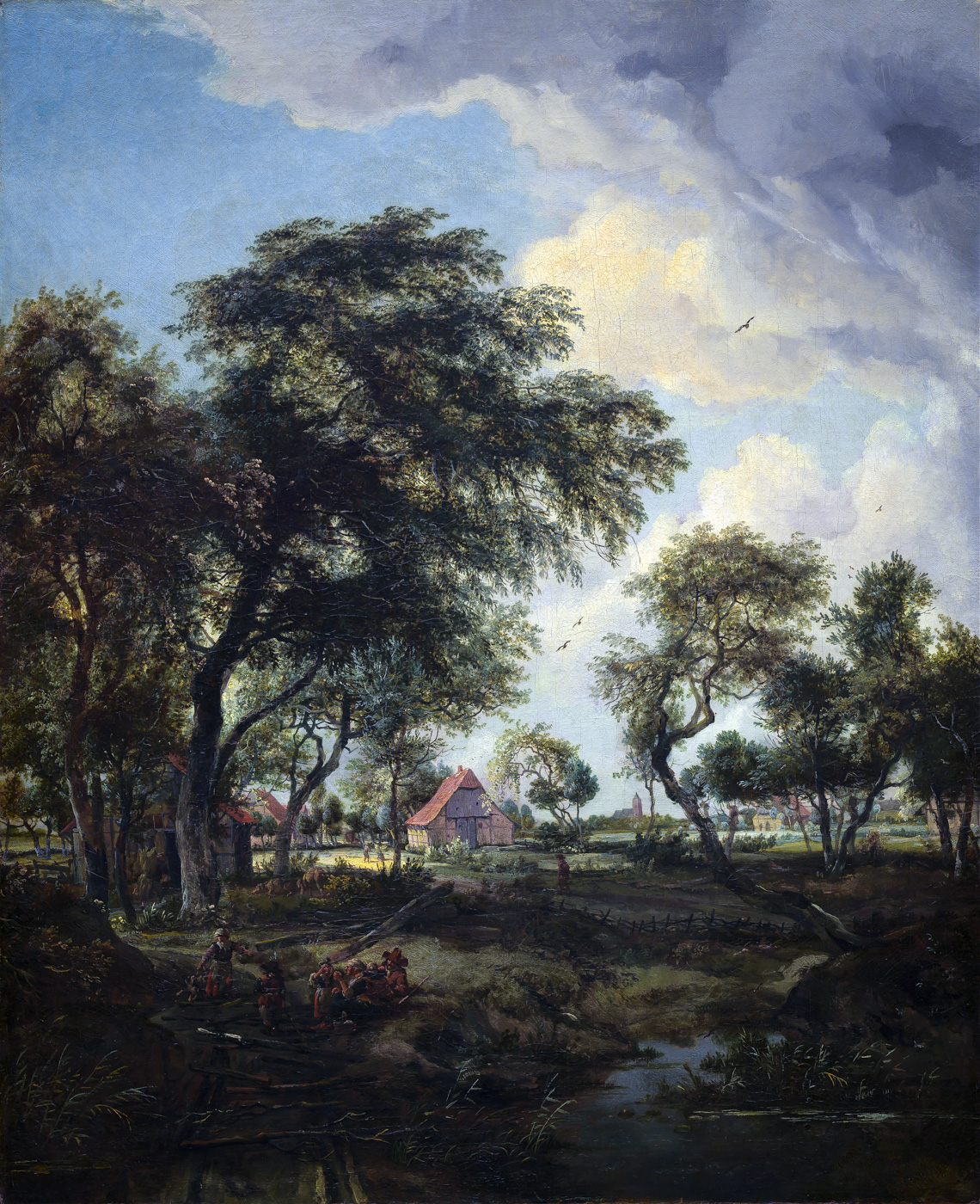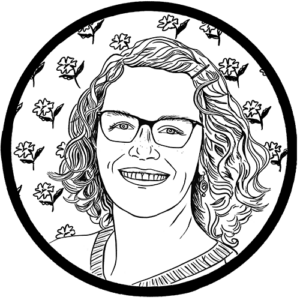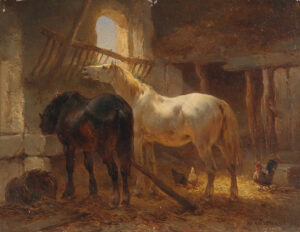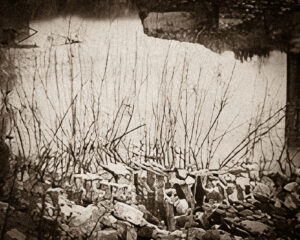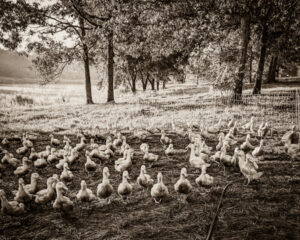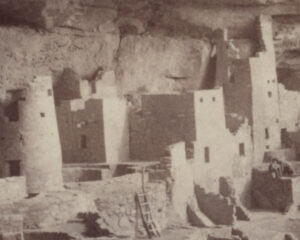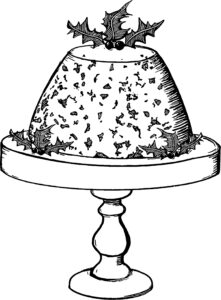Helen & Home

Dr. Dixie Dillon Lane
After thirteen hours of driving with four young children, Helen, Georgia, was a welcome sight, and not only because it meant the chorus of “Are we there yet?” from the back seats would finally come to an end.
No, Helen was not just a place to end our long day of traveling. It was the site of my late mother’s childhood home and of her grave, and it had been a decade since my husband and I had last visited.
What remains of our ancestral family farm is nestled at the base of a mountain just on the edge of town, in a hollow perfect for catching fireflies. Most of the land to the right and left was once part of the farm, too, where my great-grandparents hosted summer boarders and my grandmother wrote poetry and my grandfather tried out his farm inventions and their children built the beginnings of the house in which my uncle and his family currently reside. Besides that house, there are three others on the farm, all owned and occupied by my relatives. In the more than one hundred years since my mother’s grandparents had moved down from Virginia, Helen had become the “home place” to five generations of our family.
But it was not my home.
For many, including my mother, home is a place. My mom grew up deeply connected to the North Georgia Mountains and to the specific landscape of Helen, as well as the surrounding areas and the city of Rome, Georgia. She never stopped dreaming of returning to those mountains. Her family was a part of this attachment, of course, but the place itself was her home.
For others, home is a people. My father grew up deeply connected to an Irish Catholic immigrant culture and the shared life of several intertwined families in their bustling Chicago neighborhood. Although he has fond memories of Chicago itself, it was this immigrant community of people that comprised his home.
But for me, it was neither. I grew up in a sprawling Southern California city, with orange groves and weekly drugstore ice cream cones and houses made out of ticky-tacky (and they all looked just the same). But our family was ambivalent about California, and although we had did have some friends, there was a neighborliness and safety that was lacking in our community there. Neither the place nor the people there were really my home.
It is not that I was not connected to my hometown or our house there. In fact, when my family and I lived overseas when I was eleven and twelve, I spent many evening hours lying in bed, trying to remember the exact feeling of being in my California house. I had not realized until I left that there even was a particular feeling to the place. It was just how life was. But now, lying on an unfamiliar bed in an apartment in France, I tried to recapture just how it felt to be in our house in America.
But when we returned to California fifteen months later, I recognized almost nothing. The manicured lawns, the palm trees, and the bright, bright sunshine of it all appeared surreal. I missed my gray walks through Paris, the smell of the neighborhood bakery, and the bins of penny candy I daily perused at the corner store on my way home from my French school. It was now a distant Parisian apartment that I vaguely thought of as home.
So neither place was really “it” for me. And the social communities in which we lived were also somehow always changing, never dependable enough to cushion and correct me in the way a home must.
The meaning of home can be quite elusive, it seems.
Yet the longing for it is an innate part of the human condition. Theologians tell us that this thirst is planted in our hearts to draw us toward God, our everlasting home. To take this thought a bit further, this also means that our physical and emotional homes on this good, green Earth are typologically crucial to our understanding of who we are and even who God may be. We need a home of some sort or another in order to thrive and to grow.
[O]ur physical and emotional homes on this good, green Earth are typologically crucial to our understanding of who we are and even who God may be. We need a home of some sort or another in order to thrive and to grow.
So when I grew up, I knew that one of the most important tasks set before me would be to create a warm, stable, and supportive home for myself and my family. But alas, this turned out to be a difficult, confusing, and painful task, because I was fundamentally unsure of what a home should be.
I was anxious about my house. I was anxious about my motherhood. I was anxious about my work and my family and my faith. I could not find a place to rest, and I could not feel at home. Something was missing.
I was beginning to realize that for me, it was not a place, a culture, or a people that had formed my home in the early years of my childhood. Instead, it was something that seemed now so far lost as to be imposible to regain. My personal home had been irretrievably broken, in fact, by a tragedy long ago: the sudden death of my mother when I was thirteen. In spite of the efforts of my devoted father, once my mother was gone from me, I never felt at home again. For home was not, for me, a place or a people, but just one person.
Without my mother, how could I ever again have a home?
What do you do when it is a person who is your home, and then that person disappears? How can you ever rebuild when your foundation is pulverized by loss?
As a mother myself, I felt a heavy weight of responsibility to somehow personally become my own children’s home. But I also feared dying young and thus leaving them homeless, as I had been left as a child. 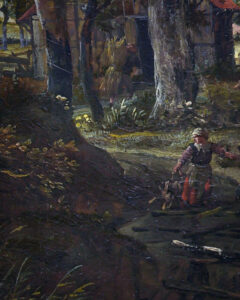 And so I resisted allowing the fullness of intimacy that would be needed to create a home-like relationship between us. And in any case, how could I possibly create a home without my own mother behind me as foundation, guide, and comforter? How can the homeless create security for others? Once I sat on my porch in the evening after a particularly grueling few hours and I cried out aloud to God, “How can I do this without my mother to show me the way?”
And so I resisted allowing the fullness of intimacy that would be needed to create a home-like relationship between us. And in any case, how could I possibly create a home without my own mother behind me as foundation, guide, and comforter? How can the homeless create security for others? Once I sat on my porch in the evening after a particularly grueling few hours and I cried out aloud to God, “How can I do this without my mother to show me the way?”
The matter was worsened by the fact that not only my mother, but half of my extended family was missing. My ties with my mother’s family, many of whom still lived in Georgia, had been broken soon after her death.
So on I went, flailing about, knowing the importance of home and just trying as best I could to create one for my family, if not for myself. And gradually, over the years, my efforts of course bore some homey little bits of fruit. As my husband Chris and I added children and friends and chickens and gardens and a dog or cat or two to our life and little bit of earth here in Virginia, we found ourselves becoming more settled in both a social community and in this place. And in many ways, we have found a home in our marriage itself, in our mutually caring for and sacrificing for each other and our children.
But something was still missing.
So this past summer, after several years of slowly rebuilding relationships with my mother’s family, Chris and I finally decided to bring our children to my mother’s home place in Georgia. My aunts and uncles and cousins there had not even yet met all of my children. And my children had not only not met the family, but they had also not met the Chattahoochee River, or the Big Rock by which each generation of children swims, or my aunt’s horses, or the grape arbor, or the hollow behind the houses, or those mountains.
And my children had not only not met the family, but they had also not met the Chattahoochee River, or the Big Rock by which each generation of children swims, or my aunt’s horses, or the grape arbor, or the hollow behind the houses, or those mountains.
It was already late when we arrived, so we heaved a sigh of relief, the long drive over, and went right off to bed in a hotel built on land once own by my great-granddad. We were ready for a long and restful night of sleep.
And then out of nowhere, I was hit with a full-blown panic. What was I doing there? My pulse raced, I began to sweat, and the world spun. I felt myself shutting down. The tall, tall trees, the kudzu vines, and the humidity that my mother had found so comforting now closed in on me with the full force of post-traumatic stress. It took me hours to fall into a restless sleep.
But the night passed, and the days went on. The panic went on, too, but I did my best this time not to let it push me away. And gradually, the fear lessened and my peace grew. We chatted and played with my mother’s family. We visited the now-touristy downtown. We hiked and swam and ate together. And little by little, my eyes opened. My aunts and uncles and cousins — it turned out that they loved us. And perhaps it wouldn’t hurt too much anymore if I admitted that I wanted to be loved by them, and that I loved them, too.
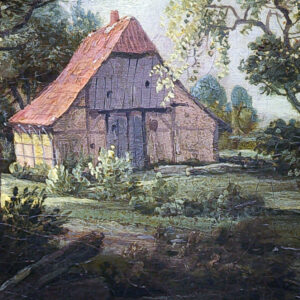 The place also seemed to love us, we discovered; Helen, and the farm. I sat on the swing overlooking my aunt’s garden and the barn and let myself cry for my mother, a rare thing for me to do. I found myself at rest in the pain of being in a place that she loved, with people she loved, and finally being able to reach my roots down again into the rich soil of a place and family from which I had been uprooted, but which had for more than a hundred years been preparing itself in part for me.
The place also seemed to love us, we discovered; Helen, and the farm. I sat on the swing overlooking my aunt’s garden and the barn and let myself cry for my mother, a rare thing for me to do. I found myself at rest in the pain of being in a place that she loved, with people she loved, and finally being able to reach my roots down again into the rich soil of a place and family from which I had been uprooted, but which had for more than a hundred years been preparing itself in part for me.
My children and husband drank it all in along with me, each of them sending down roots of their own. My ten-year-old daughter, especially, connected to the place and the past there, writing the following description:
Observations of a Town Girl Come to Visit the Farm
Mama brought us to the farm. The farm is: A green pasture that belongs to my aunt, so green that its greenness cannot be described by me. Horses graze there and stand blissfully on soft bright turf that eases the pain of their hurt legs. Sunshine, Sugar, and Trip live in arthritic bliss with a little stream nearby, and a bunch of old, timeless trees that must be at least a hundred years old. Only love, comfort, and curiosity in that field.
Love, comfort, and curiosity — sounds like home. In reality, there is both joy and pain in a home, and they are both present in Helen and in our family, too, in this home place and in this home people. But home is the context in which pain doesn’t hurt quite so much. It is a place, physical or metaphorical, where grief is not feared because comfort also is ready. It is a place for life as it is a place for death. It is a place for working, living, learning, fighting, praying, singing, writing, building, and becoming. It is a people to whom you irrevocably belong. And at the end of the visit to Helen, it was as if I finally understood how wide and deep my home could be. I felt that perhaps I had been wrong: I did have a foundation beneath me, after all, and a much broader one than I had imagined. It turns out that it was not just my mother who was my home.
We won’t be moving to Georgia anytime soon, although the idea has crossed our minds. Or to Chicago or California or my husband’s hometown in New York. That is not what I mean. The change taking place is rather that, having opened my heart and reconnected to my mother’s home place and our family past, I now feel a part of something bigger once again. I am not responsible for everything anymore; I am part of a line. And I feel that I am a part of it by birthright, by blood, by something stronger than my efforts alone. My birthright is not gone just because my mother is.
And neither does my own children’s home depend entirely upon me. If I really do still have roots in place and in people, then I also feel somehow more confident that perhaps my husband and I really can create a family and a home for our children that will serve as their foundation and comfort in all the years to come.
With both a people and a place supporting me — and, I pray, my mother still interceding for me from her final home — I may not be homeless, after all. For the first time in more than twenty-five years, I think I am finally beginning to feel that I am home.

